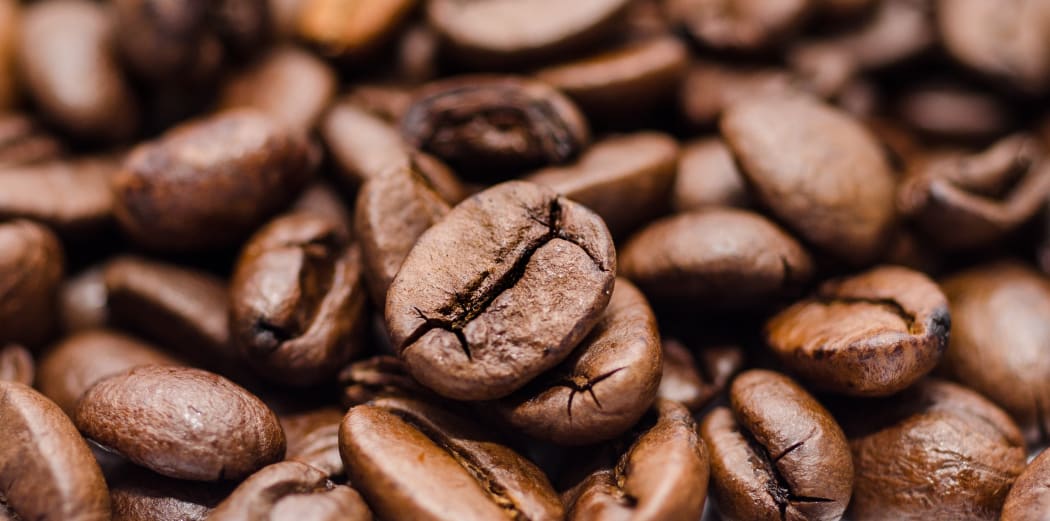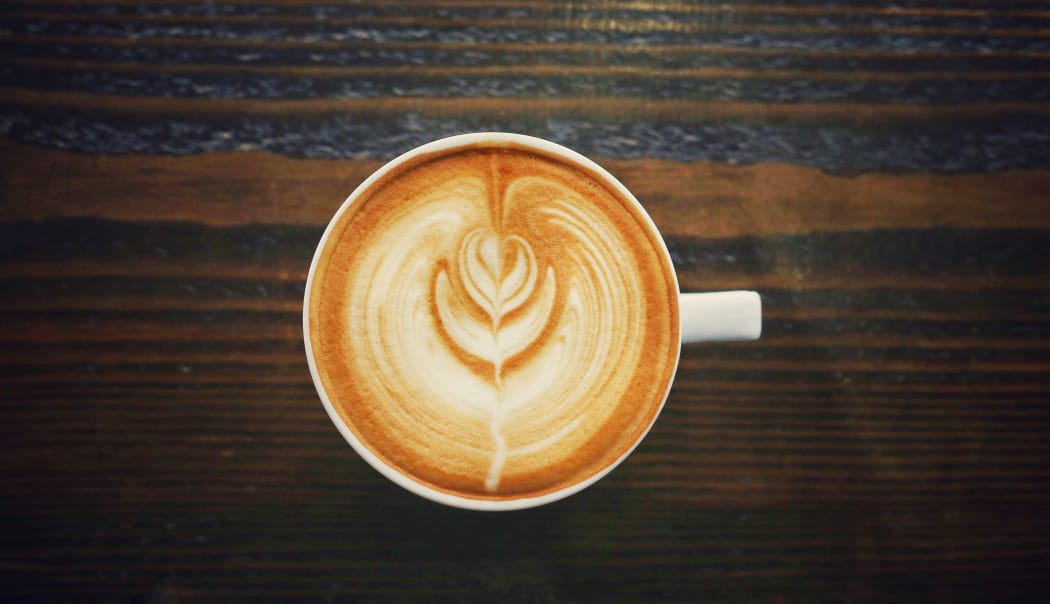Five years ago, a casual text message from a friend led a young Yemeni-American man to his calling – helping restart the coffee industry in the poor, war-torn country his parents had emigrated from, said to be the birthplace of coffee-drinking.
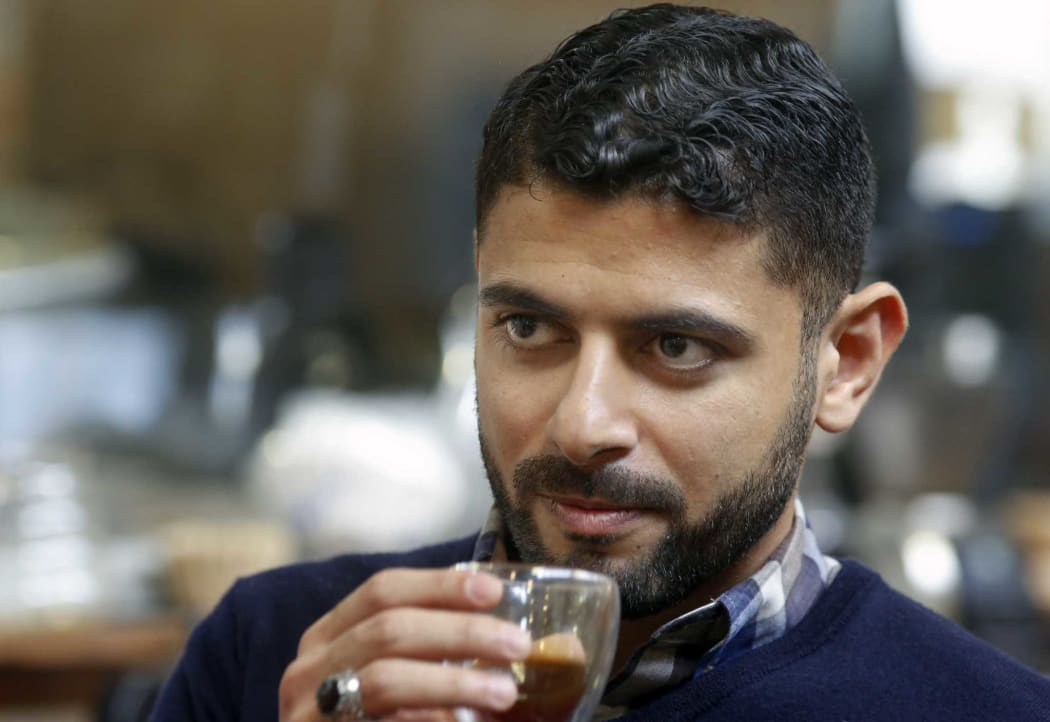
Mokhtar Alkanshali, is the subject of David Egger's new book, "The Monk of Mokhtar". Photo: Jeremy Stern
Mokhtar Alkhanshali's extraordinary journey – surviving malaria, civil war, kidnapping and an escape across the Red Sea by dinghy to eventually export the first coffee beans out of Yemen in 80 years – has been documented in The Monk of Mokha by US author Dave Eggers.
That day in 2013, in San Francisco, Mokhtar's friend suggested he check out an interesting bronze statue near his workplace.
It was a man from the Republic of Yemen – the Middle Eastern country Mokhtar's parents had emigrated from – drinking a cup of coffee.
After some feverish Googling, Mokhtar discovered the very first coffee had been brewed in Yemen in the 15th century and its port of Mokha had for centuries been the centre of the world’s coffee trade.
"For the first time, I found something [about Yemeni culture] that I could be really proud of."
"Naively arrogant" and with no master plan about how to set up a coffee business, Mokhtar studied to be a coffee sommelier.
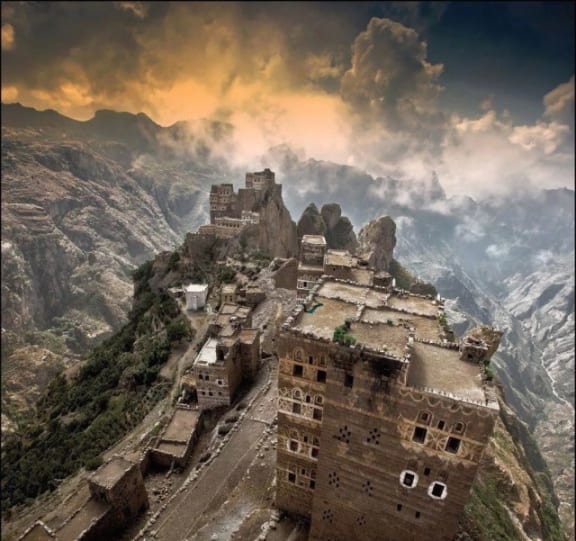
Yemen Photo: Blue Bottle Coffee
Then in the spring of 2014, he made his first trip to the coffee farms of Yemen.
As hoped, he saw some "beautiful coffee terraces and lush valleys and mountaintops" but the farmers were picking the coffee 'cherries' before they were ripe and drying them out on rooftops covered in chicken poo.
For every coffee farm in Yemen, there were seven farms of 'qat' (a leafy plant with effects similar to caffeine that many Yemenese chew).
The farmers were hospitable and warm, but Mokhtar says he didn't know what he could promise them.
"I felt they needed hope. They looked at me with eyes that wanted help from me."
Of the 21 coffee samples from different regions back to the States – 19 failed standards tests.
But two samples got a 90+ rating – the highest you can get and a mark of the most unique coffee in the world, Mokhtar says.
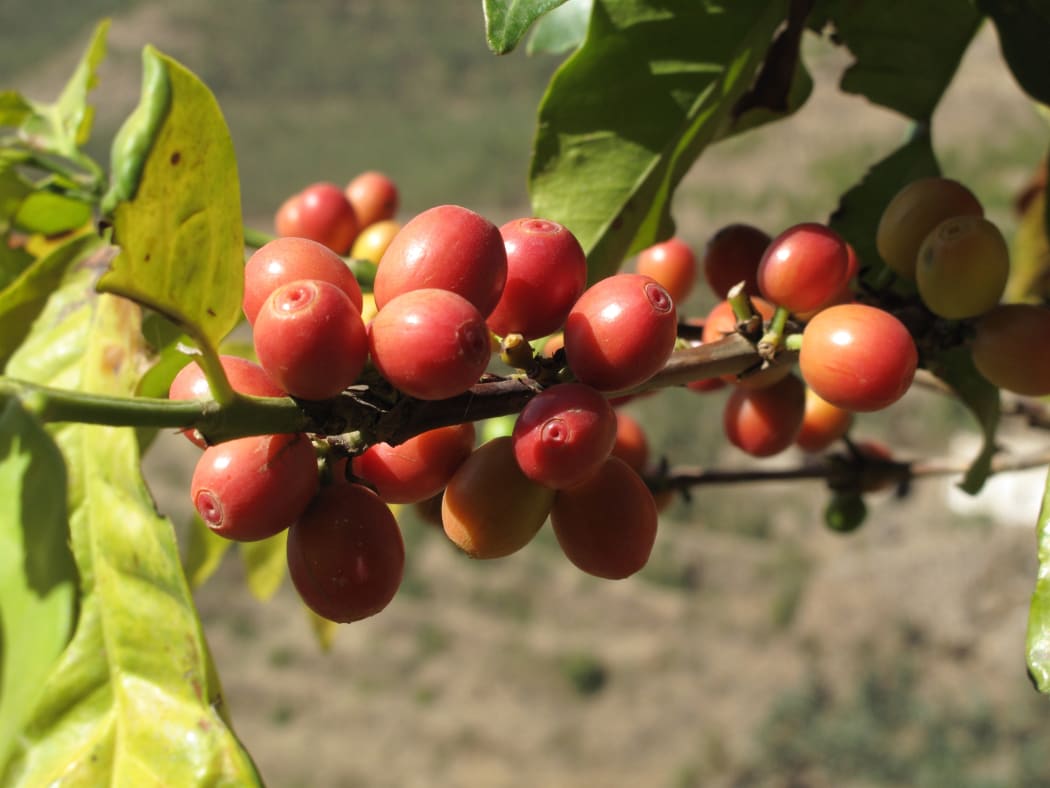
Ripe coffee fruits in Yemen Photo: Photononstop
The next year, Mokhtar was in Yemen, scheduled to fly out on 25 March, but the situation there went from really bad to really, really bad, he says.
"I woke up at night and I heard loud explosions around me. I went out to see what was going on and I saw what looked like laser beams being shot into the sky. And those were antiaircraft machine guns being shot at Saudi fighter jets."
Mokhtar had only seen combat in movies, but was now in the middle of a civil war.
"To feel the ground shake and hear the cries of people and not know if you would see the morning…"
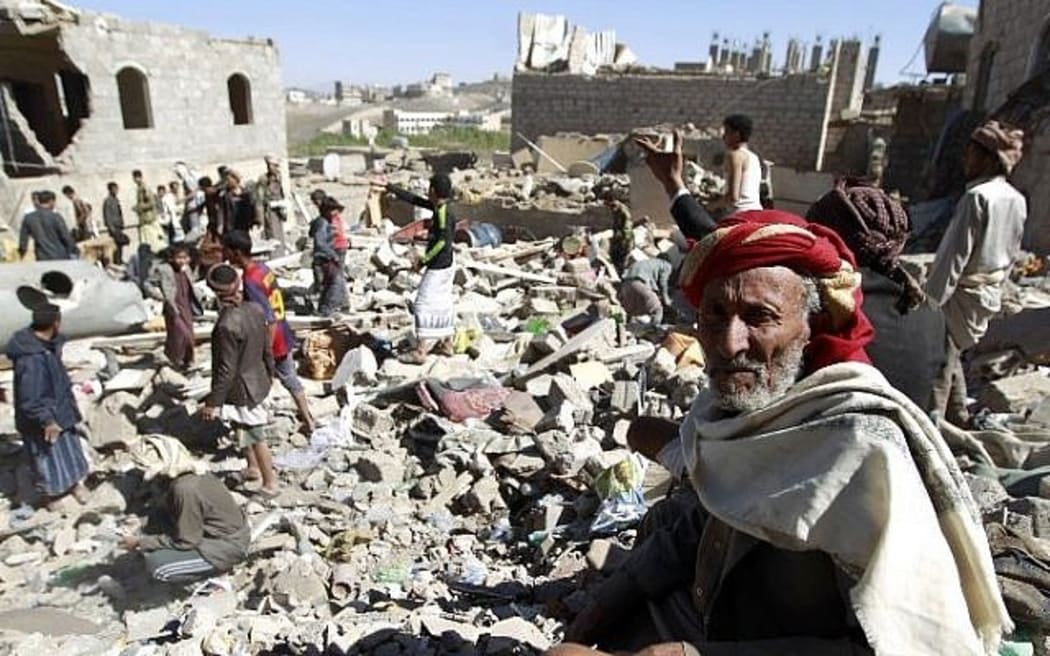
A Yemeni man sits on the rubble as people search for survivors in houses destroyed by a Saudi-led air strike on a residential area in Yemen's capital, Sanaa on May 1, 2015. Photo: AFP / MOHAMMED HUWAIS
The airports were closed and the roads impassable so Mokhtar eventually got in a refugee dinghy at the port of Mokha – his first time in a boat – with a couple of suitcases of coffee samples.
The dinghy crossed the Red Sea to the small African country of Djibouti.
Mokhtar says he was lucky to have a US passport in Djibouti, but it isn't a lot of help in Yemen.
While China, Russia, India and Pakistan are helping their citizens get out of the war-torn country, the US is not and thousands of Americans are stuck there, he says.
The situation makes him sad and angry.
"Those bombs were not made in Saudi Arabia, they were made in the US."
Mokhtar says he feels both guilty to survive sometimes and thankful.
"I need to help Yemen and help my farmers … I've made it out just to tell their story.
In a country where 18 million people are food-insecure, 2 million people are refugees and over a million people have been affected by cholera, Mokhtar says his Port of Mokha coffee business only makes a small difference.
But he takes inspiration from how the Rwandan coffee industry helped that country rebuild after a genocide.
"I believe coffee is an incredible way to really impact peoples' lives."
The coffee we drink may have been touched by 20 pairs of hands before arriving in our cup so as coffee consumers, we have a big impact on the lives of coffee producers, he says.
"When we buy a cup of coffee we have the ability to uplift someone rather than exploit them. And when we decide to go cheap on things, someone pays a consequence for that.
"If we took the time to understand this incredible journey from the picker of the coffee from the processor to exporter and importer and roaster and barista, it's really a miracle this coffee gets to the way it does."
Next year Mokhtar hopes to visit our part of the world.
"You guys in New Zealand have an incredible coffee culture. The 'third wave movement' – as it's called – is all about traceability, understanding where the coffee comes from and the people who grow it and how they're treated. You have incredible coffee roasters who take the time to go to countries like Guatemala and Ethiopia and Kenya and build relationships with farmers."
At its heart, The Monk of Mokha is the story of a poor immigrant kid who found his calling, Mokhtar says.
He and his six siblings were raised in a one-bedroom flat in San Francisco's Tenderloin district – a neighbourhood he describes as "really ghetto with lots of violence and drugs".
"It's really hard for a young kid to be able to dream and see himself outside of that harsh environment."
As an Arab Muslim kid post-9/11, he felt caught between the Middle East and America.
"I found myself between these two places and sometimes I didn't fit in either of them.
"Do I do something that makes me money? Do I do something that makes me happy? What is that thing that makes me happy?"
Mokhtar says everything he's experienced has led him to gratitude.
"I'm a man who believes he died three years ago. And I live every day as if it's a gift. I don't take time for granted.
"I hope to live a life of impact, something positive before I check out of this hotel."
